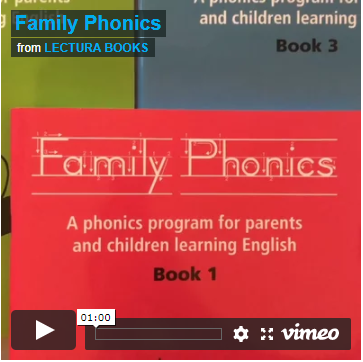Teaching English Phonics to Spanish-Speakers 
When a person’s mother tongue is Spanish, particular sounds in English are often more difficult than others, says an article by Pronunciation Studio on teaching English phonics to Spanish-speakers. Here are several of the more common mistakes made by Spanish-speaking students, according to the article.
In English, the plosive sounds /p,t,k/ are typically aspirated (a big explosion of air) but never are in Spanish often causing big slip-ups.
Spanish is a syllable-timed language so every syllable is stressed, whereas in English stress-time involves choosing (usually only a few) certain syllables to stress, with everything else becoming weak and/or shorter.
The most common sound in English is the weak vowel “schwa” /ə/. The problem is that this sound can be spelled with any A, E, I, O, U vowel, and it should never be stressed, which is difficult for Spanish speakers since every syllable is emphasized.
The TEFL website says that perhaps the single biggest pronunciation problem for Spanish speakers is that their language doesn’t distinguish between short and long vowels. For instance, they often stretch all vowel sounds out and confuse pairs of short and long English vowel sounds like “ship” and “sheep.”
Vowel letters can look the same in Spanish and English, however, are named differently and represent very different sounds, says the article “English Language Learners and the Five Essential Components of Reading Instruction” on the Reading Rockets website. Therefore, English vowel sounds and their numerous spellings often present a challenge to Hispanic students because the one-to-one correspondence between vowel letters and vowel sounds in Spanish isn’t true for English.
To help with these challenges and more, Family Phonics is a highly insightful and useful program for parents and children learning English offered by Lectura Books. Using a simple method to teach parents, this unique book publishing company trains school staff via a 30-minute free webinar with the purchase of their sixty book set (20 copies each of 3 levels). Parents learn strong English vocabulary and correct pronunciation. Materials are perfect for Title I parent involvement, Title III for English language development, 21st century learning centers, afterschool programs, ESL and migrant programs.
Lectura Books is the publisher forThe Latino Family Literacy Project — a terrific parental involvement program known to many schools throughout the country. Through its half day professional development training workshops or online webinars, the Project trains teachers on helping parents establish a reading routine using bilingual books. Research shows that a regular family reading routine improves vocabulary, reading skills, and overall language development in both English and Spanish for not only the child, but parents too. For more information, please contact Lectura Books or The Latino Family Literacy Project.
